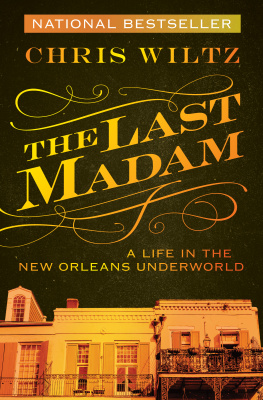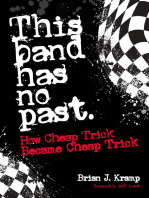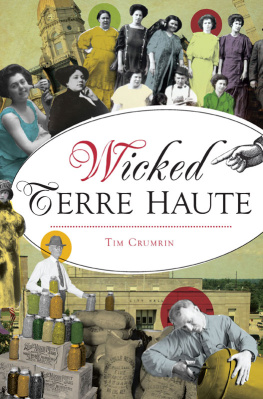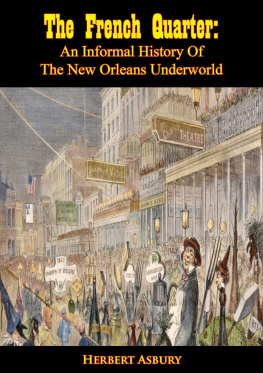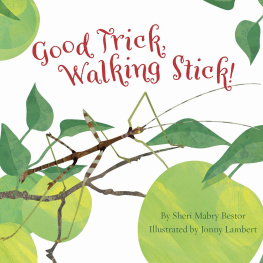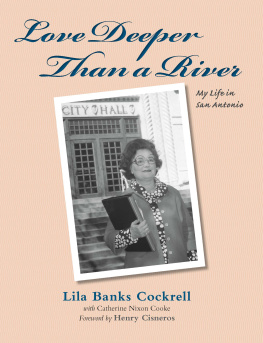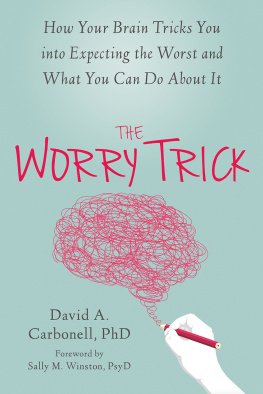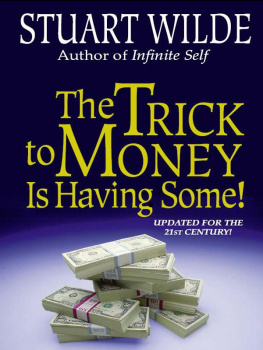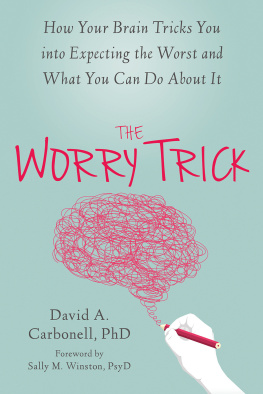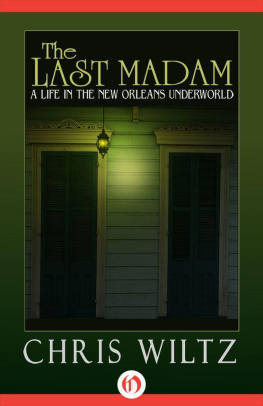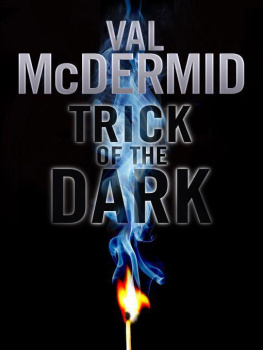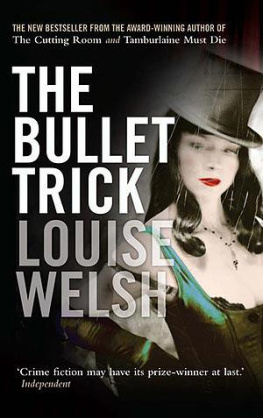CHRIS WILTZ
FROM OPEN ROAD MEDIA
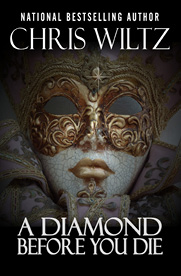

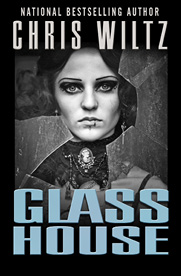
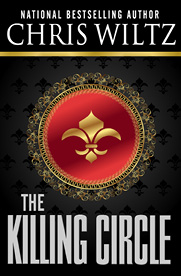
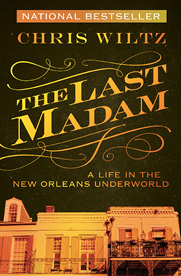
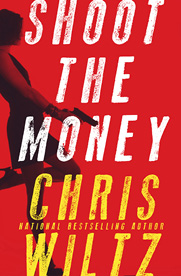


Find a full list of our authors and
titles at www.openroadmedia.com
FOLLOW US
@OpenRoadMedia




The Last Madam
A Life in the New Orleans Underworld
Chris Wiltz

All rights reserved, including without limitation the right to reproduce this ebook or any portion thereof in any form or by any means, whether electronic or mechanical, now known or hereinafter invented, without the express written permission of the publisher.
Grateful acknowledgment is made to the following for permission to reproduce photographs in this book: The New Orleans Times-Picayune for photographs of Norma Wallace in the 1930s and at her grand jury appearance; the Vieux Carr Commission for photographs of 1026 Conti Street and of Petes Ringside Bar; the Historic New Orleans Collection for the photograph of Canal Street in the 1950s; the New Orleans Public Library Louisiana Division for photographs of Frederick Soul and Jim Garrison; Charles Gennaro for Randy Moses photographs of Normas nudes, painted by Pl Fried; Louis E. Darr for his photograph of Norma that appeared in New Orleans magazine; and John Datri and Paul Nazar for photographs of themselves. All other photographs appear courtesy of Wayne Bernard.
Copyright 2000 by Chris Wiltz
Cover design by Andy Ross
ISBN: 978-1-4976-5850-9
This edition published in 2014 by Open Road Integrated Media, Inc.
180 Maiden Lane
New York, NY 10038
www.openroadmedia.com

To the girls
Contents
CHAPTER ONE
Lemon Pie
Norma Wallace stood on a bed of pine needles deep in the Mississippi woods, dressed in a smart red pantsuit and low-vamp leather pumps; she spread her feet apart, sighted down the barrel of her .410 shotgun, and blew the head off the rattlesnake in front of her. There had been a time, not so long ago, when shooting a rattler made Norma feel like a cowgirl. Now the very sight of one made her jumpy as an old maid. The isolation of the place was getting to her. Her Irish setter, Rusty, ran ahead as she walked to the cedar-shingled house. He seemed to be her only company lately.
Normas hands shook slightly as she put the gun on the rack. Settling herself on the plush-velvet contour sofa facing the brick fire-place, she listened for the sound of a car on the two-and-a-half-mile road to the house. Her white hair glowed in the firelight.
Normas young husband, Wayne Bernard, didnt always make it home these days. Sometimes he called, but it was getting dark now, and shed heard nothing from him. She could feel a long night stretching out before her.
The clock on the mantel softly chimed seven. Norma got a rush of the old excitement and anticipationwhat was this night going to bring? Shed had that feeling at nightfall for over forty years, when she ran her business in the French Quarter. Tonight it passed quickly, because now her life was all about waiting, worrying, and remembering. To pass the time she started dictating into the tape recorder beside her. Her hope was that shed come up with a best-selling book about her life and times as the last madam of New Orleans to run an elegant French Quarter parlor house.
How do you write a book about forty years of intrigue, fools, deals, and propositionsthat panorama so peculiar to New Orleans? she mused. Her voice was deep and raspy, though not the whiskey voice given to madams in the movies. She had a trace of an accent, not Southern but New Orleans, that slow way of talking associated with downtown, an accent that sounds like Manhattan in a tropical heat wave.
More to the point, she wondered how shed gotten from a life of adventure and intrigue to this one, that of the disappointed wife waiting at home. That word disappointed triggered her memory, and she began telling her tape recorder a story about her childhood, the only story she chose to tell about her early years.
The greatest disappointment of my life happened when I was eight. We were so poor that we used to move instead of pay the rent. An old colored man with a horse and wagon would move us for two bucks, which was cheaper than paying eight dollars for the house.
Many people were poor in 1909, as revealed by the number of empty houses on New Orleanss streets. People would all hole up in the same place because it took four or five of them to make a living and pay the rent. But we were just my parents, my brother, Elmo, and me. So we would move about every three months, after the landlord knew he was beat and put us out. We finally got so hot in one neighborhood that we had to move to another section of town.
The family found a small place with no gas or electricity on Salcedo Street in what Norma called the back part of town, now Mid-City. The amenities were a coal-burning stove and an outhouse.
Eight-year-old Norma would have liked to have had a new dress, something pretty and frilly, but mostly she wanted something to eat. There wasnt much to cook on that old stove, and Norma was hungry all the time. The worst of it was that on the corner was a bakery. They baked little lemon pies, and Norma could smell them, their mouthwatering aroma filling the neighborhood, the house, even her dreams. What she wouldnt have given for one of those pies! They sold for ten cents each, as out of reach as a party dressor the moon. But that didnt keep Norma from nagging her mother about them.
Then one evening her father brought home a boarder, Mr. McCann. How was he going to board with us? We didnt have anything to eat! I dont even know where he slept because I dont remember but two beds. But he came to live with us. He was an alcoholic, and he used to drink Four Roses. Ive remembered Mr. McCann with his Four Roses all my life. He stayed pretty drunk, but we needed the help bad so we would take a chance on anything.
Next page
